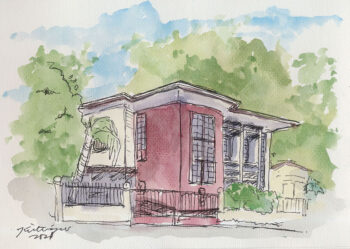(Co-sponsorship Speech on Senate Bill 1717 or the Bangsamoro Basic Law, delivered by Senator Risa Hontiveros on 28 February 2018)
The conflict in Mindanao has been a democratic and developmental struggle that has spun decades, claimed hundreds of thousands of lives, uprooted millions, resulted in inhumane levels of poverty, lawlessness, and uncertainty. It has changed the historical landscape of the Southern part of our country: from the brave kingdom of our anti-colonial resistance to the situs of decades-long insurgencies and countless rebellions: the Jabidah Massacre, Zamboanga Siege, Jolo Bombing, Marawi Crisis, and countless more. It has written the continuing story of Mindanao filled with narratives of violence, oppression, and marginalization.
This afternoon, Mr. President, my dear colleagues, we change that narrative.
With the Bangsamoro Basic Law, a bill I proudly co-sponsor, we renew our commitment to democracy. The persistent strife and poverty in the region took its damaging toll to our democratization project. Providing a measure of politico-economic and socio-cultural autonomy of people belonging to the Moros, with assurance of political participation and representation of Indigenous Peoples, does not only make Bangsamoro a compliance to an unflinching mandate from our Constitution. It furthers a democratic society that does not succumb to the tyranny of the majority but one that protects the vulnerable, the disenfranchised, and the historically disempowered.
The Bangsamoro Basic Law establishes the political and economic infrastructure that will facilitate fixed capital formation, increase government funding, and international development aid infusion into the region. A legitimate share in the resources and their management will translate into growth, productivity, security, and ultimately, empowerment. It will equip the regional government with the crucial resources that can address socioeconomic needs of our Bangsamoro people. It is our answer to the question that is the disproportionate utilization and distribution of wealth in this country.
Bangsamoro, Mr. President, is our commitment to equitable development.
Furthermore, the establishment of a Bangsamoro autonomous government will be an institutional recognition of the justness and legitimacy of the cause of the Bangsamoro people. It is the fulfillment of our promise to put in the front and center of their political future their needs, their aspirations, their dreams.
Finally, Bangsamoro is our commitment to peace. A peace that is built on and strengthened by democratic ideals, empowerment, progress and justice. A peace that has long been awaited by a nation that is trying to heal from its fractured history.
Maraming martyr at bayani na ang ating nailibing. Marami ang nawalan ng bahay, lupa, at ari-arian. Marami ang nawalan ng oportunidad at pag-asa.
Sa pagpunta naming mga Senador sa Mindanao para sa pagdinig sa BBL, kasabay nito sana ang pagsasara ng yugtong ito ng kasaysayan ng Mindanao. Tumatak sa aking ang mga placard na “No Peace Without Women”. Na panawagan ng mga kababaihan na nagpalaki na ng mga anak nila sa evacuation center. “Pass BBL Now”, ng kabataang sumalubong sa amin, nagpa-selfie, nagpahayag ng suporta. Mga kwento ng mga MILF (Moro Islamic Liberation Front) na first time nakasakay ng C130 ng AFP na hindi sa gitna ng engkwentro. Mga kwento ng pag-asa.
At this point, Mr. President,my dear colleagues, I’d like to thank the men and women of Bangsamoro Transition Commission for their hard work and unwavering zeal in coming up with this revolutionary piece of legislation.
Ngayon sa plenaryo, babaguhin natin ang kasaysayan ng lupang uhaw sa kapayapaan. Nawa’y maipagpatuloy natin ang momentum na ito para sa kapayapaan.
Magandang Hapon. Maraming Salamat.







